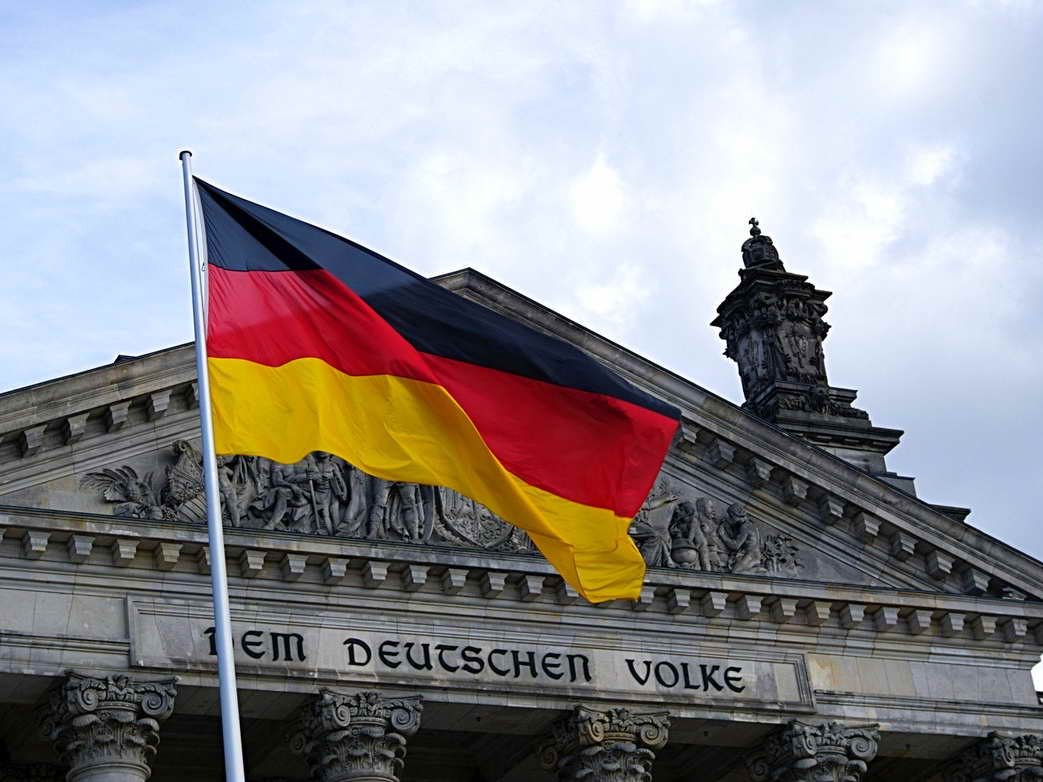Putin Awakens Germany
As the world watches the horror unfolding in Putin’s war with Ukraine, nations are being asked to choose sides. Most are backing Ukraine, by applying sanctions to Russia in addition to providing significant resources for Ukraine’s defense. Lost in this aggression, however, is a significant development. Putin’s actions are so inflammatory that they have even caused Germany to drop 70 years’ worth of pacifism and anti-militaristic diplomacy. It’s a policy shift of epic proportions.
Germany’s Recent Decades
Germany’s pacifist diplomacy and anti-militarism are a result of its history during the 20th century. Germany joined Austria-Hungary and lead an aggressive and ruthless campaign during World War I. After the war ended, The Treaty of Versailles was signed, which held Germany responsible for starting the war and imposed severe penalties which included a forced demilitarization. The size of the German army was limited, along with the size of their airforce and navy.
The impact of the Treaty of Versailles was pervasive and gave rise to extreme right-wing political forces and economic instability along with a Great Depression which paved the way to Adolf Hitler’s rise to power and eventually the start of World War II. After being the world’s enemy for another worldwide war, Germany lost and again signed a surrender. The country was divided by the Allies into four zones of occupation, British, French, Soviet, and American.
Eventually, Britain, France the US combined their occupied territory into what became West Germany. This new nation built out of the rubble of the old was once again limited in what it could have for its armed forces, all of which were only to be used against the threat of Soviet aggression.
The Soviet Union continued to occupy East Germany, which became a Warsaw Pact member in 1955 within a week of West Germany’s admission to NATO. With American, British, and French armed forces based in West Germany, its national security was insured.
When West Germany joined NATO in 1955, its national security was outsourced to other countries. Over the decades Germany became a European economic powerhouse and became united again after the fall of the Berlin Wall in 1991. Since reunification, Germany’s policy has been exclusively defensive, even forbidding the arms it sells to other countries to be used in conflict zones.
In more recent years, Germany’s military has participated with other NATO countries as peacekeepers. It was deployed in conflicts in Bosnia and Herzegovina and Kosovo in the 90s on peacekeeping missions. More recently in response to ISIL, Germany deployed 1,200 troops but would not participate in offensive operations.
By 2020, Germany had become the dominant economy in Europe and a leader on the world stage in terms of science, technology, export, and import. It is the largest, most populous, country in Europe and has the greatest GDP of the European Union. Although many years passed and put more distance between Germany and the damage it did during the world wars, the sense of shame and the link of war to the destruction of civilization has not lessened. Because of this and its role as a world leader, Germany has been hesitant to wield a large sword.
Germany Puts Aside Pacifism
On Sunday, February 27, 2022, Germany’s chancellor, Olaf Scholz, announced emergency funding of the German military of 100 billion euros while also pledging to boost defense spending to above 2 percent of GDP. Previously, Germany’s contribution to defense had hovered around 1.5%. The increase to 2% will be in line with the expectations of NATO. Germany’s response to the crisis in Ukraine has been considered insufficient. As other members of NATO started offering anti-tank missiles, ammunition, machine guns, and air defense rockets, Germany was criticized for offering only helmets and a field hospital. On Saturday, Germany reversed its long-standing policy of banning weapons exports to war zones by sending anti-tank weapons and Stinger missiles. This move goes against its security policy of trade and diplomacy.
Valdimir Putin’s invasion of Ukraine has made clear that Germany can no longer maintain its pacifist attitude and no longer be concerned with the perception of becoming a powerful military on the world stage. The threat from Putin has forced Germany to overcome its angst and accept that the world has changed and needs its assistance in ways it has been previously hesitant to render. Pressure from the EU and around the world has prompted a major overhaul of Germany’s security policy. Chancellor Scholz and the Bundestag have taken the first steps with their decisions to send weapons and increase their military spending. With the wide support of its citizens and the approval from the rest of the West, Germany has made a strong policy shift that has been expected from a world superpower.
Germany’s announcement of giving arms and increasing its defense budget in the wake of war shows a massive shift in policies that were shaped by its responsibility in past wars. It is even more notable coming from Germany’s new left of center coalition government. Made up of the Social Democratic Party (SPD), the Greens, and the Free Democratic Party (FDP), the coalition’s current agreement avoided a commitment to the 2% NATO spending target. In only a few months, Scholz undid that with countrywide support. As fighting continues, the world is making choices to aid Ukraine’s defense. Germany’s contributions to Ukraine and its new spending start a new chapter as it remains committed as a leader in Europe in the 21st century.





Good article Shari! Now translate it? Hah, and that would be tough!
Christa